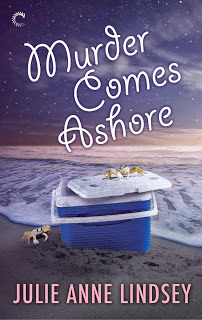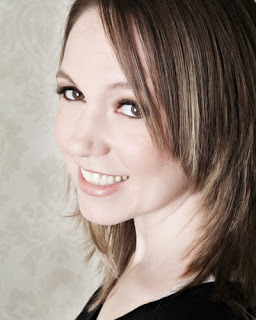Chris Redding's Blog, page 21
March 19, 2014
Blog Etiquette
Here's all you need to know about appearing on this blog.
Just ask. All I need to know is that you wrote a book. I'll even feature erotic romance. As long as the excerpt is G rated.
What else can you do? Ask nicely and ask me when I have an opening. Or ask me if I have an opening in the time frame you need. I may. I may not. I'll try to accommodate you.
Get me your blog post on time. That means at least a week prior to the date I give you. I'm very firm on this, though if some life catastrophe happens and you let me know beforehand that you'll be late, that's okay. Life happens. I get it.
Get me all the material I've asked for. I will not chase you down.
What shouldn't you do? Send me a blog post if we've never discussed a date. I may not remember that I've offered you the spot. If I have an e-mail trail (which I keep) then I know what we discussed.
What else shouldn't you do? Put me on your newsletter or e-mail list. I can't be on everyone's.
What is one more thing you can do? Offer to reciprocate. I would love to be on your blog and will happily follow your rules.
ThanksMarch 17, 2014
Why Publisher Need to Think Like Amazon
Here's someone who thinks publishers should think like amazon. Read it here.
Then read Passive Guy's response to it here.
Always a good read from one of my author Rock Stars.
Author Rock Star Update
Here's what my author Rock Stars were up to last week.
From J.A. Konrath
Here's What I Know
Be self-aware.
Be deliberate.
Read the rest.
Bob Mayer had a guest blogger talking about reasons to write mystery
We welcome our newest author, Sibella Giorella, to the Cool Gus gang.
On The Passive Voice he once again has a great collection of blogs he has linked to. I couldn't choose just one.
Have a good week.
March 15, 2014
Too Much Manure
Here's an interesting post about what traditional publishing cannot offer you.
These are the things people will tell you that you’re passing up if you don’t sign on the traditional line, and I’m calling it. It’s bullshit. Seriously stinky stuff, and a lot of people don’t know, so here’s my post.
Read more here.March 14, 2014
Identity Crisis
J.A. Konrath has a great blog about identity. Do you consider yourself a writer?
Who am I?
What do others think of me?
Identity is a very important, and terribly difficult, concept to grasp. What makes us who we are is fodder for philosophers, and perhaps biologists, not for this blog.
This blog is about publishing, and it is written for writers. But I'm going to take a stab at discussing identity anyway.,/p>Read more:
March 13, 2014
Writing Prosperity Into Your Publishing Plan
For most of us, we never got into publishing out of a desire for dollars. Yes, being published and having sales are great; we certainly won’t turn down royalty checks. But, when it comes to being published, most authors I know, including myself, started with the need to tell stories. As we grew as writers, so too did our stories, and once we became published, our backlists began to grow as well. Authors today have far more choices and as a consequence know far more than many authors who started out several years ago, and still, they don’t begin with a prosperity practice, or plan, in mind.
It’s only after being published, sometimes multiple times, that authors begin to think about prosperity and how to grow their income. It’s at this point, when authors start thinking about prosperity practices.
Simply put, a prosperity practice is something done repeatedly that helps increase an author’s sales and income—their prosperity. As authors, it’s easy to do things, such as social media, blog posts, chats, etc., to boost our prosperity. Our marketing efforts are part of a well-rounded prosperity practice. It’s the inner author that takes work, and it’s also the part of our writing that is often neglected.

For me, a prosperity practice is a blend of spirituality, new thought, healing techniques and modalities, and some good old fashioned goal setting. Others create practices that nurture the inner author and work with their own beliefs and interests. There is no one “right” way to create a prosperity practice.
If you haven’t, take some time to think about how you nurture and care for yourself, and also how this affects your thoughts on money, income, royalties, and prosperity. Sometimes a bit of soul searching is all that’s needed to find the shift necessary to help us move forward with our dreams. Other times, this introspection can lead us down paths we might not have thought about and open doors we never imagined.
It is time that authors start to write their prosperity into their publishing plans. It can be as natural as plotting a book, creating a marketing plan, or making a timeline for a series. Even authors who don’t plan, who write by the seat of their pants, can still incorporate prosperity work into daily writing and personal practices to help them grow. When it comes to thinking about all aspects of our writing careers, it only makes sense to think about the prosperity too. Because whether we like to admit it or not, that’s an important part of our careers and deserves the same level of attention we give the rest of our writing.
Bio:Want to learn more about prosperity practices? Join Mary in March for Prosperity Practices For Writers, a six week class beginning March 21. Learn about personal prosperity practices and how you can integrate them into your writing and your life to help support and energize you toward your financial goals! To register visit http://musecharmer.com/prosperity-pra.... There are discounts if you register before February 28.
Mary Calesto lives in the Ozarks with her partner and a menagerie of animals, including two spoiled horses, an opinionated parrot, a wiggly puppy, an office bunny, and the not-so-itty-bitty kitty committee. She has written romance for over ten years under a few different pen names. These days, she spends time with her own writing and also uses her lengthy experience in publishing to coach authors as The Muse Charmer (www.musecharmer.com). Her goal is to show authors the tools they need to reach their goals by working on the inner writer through a variety of techniques, as well as help the outer writer with solid industry and craft advice.
March 12, 2014
Twitter Tips
Twitter is an amazing tool to brand yourself as author and connect with your readers and fellow authors. Twitter can play a big role in your Author-Marketing Strategy if used correctly.
Read more.March 11, 2014
The Road Not Taken
This is an interesting post about her decision to self-publish even when her New Adult novel went into auction.
It was a hot, dry morning in early October when I paced the floor of my office at work, checking my cell phone obsessively.
Read the Rest
Best and Worst about being a writer.
http://blog.ebooksoda.com/best-and-wo...
March 9, 2014
Julie Anne Lindsey
I started writing in 2011 after the birth of my third child. I was homeschooling a kindergartener, potty training a toddler and nursing a baby. Suddenly it seemed imperative I find something to anchor myself before I was gobbled up by the needs of the people I loved.
2. What was the name of the first novel you wrote? Did you try to publish it?My first completed novel was titled Bequeathed. I tried desperately to find an agent and failed. In hindsight, this was to be expected because I knew nothing about writing or the industry. My poor writing was a wee baby in a messy diaper. I didn’t know that then, so I was wholly rejected and sometimes ignored. That’s okay. That’s the business. Publishing’s a marathon, not a sprint. Plus, I learned a lot by failing.

3. How many rejections have you received?
Hundreds. Maybe more. I continue to be rejected on projects, but it doesn’t stop me and I keep writing. Once you’re published, the rejections still come, but this time in the form of readers and reviewers instead of agents and publishing houses. This is why it’s imperative we write because it brings us joy. If we write because we love to write, the rejections stings less. Hey, If I wrote to please the world, I’d be adding whisky to my morning coffee by now.
4. Describe your book.My March release, Murder Comes Ashore, is the sequel to my October release, Murder by the Seaside. There are three books coming in the series I created for Carina Press and these books are fun, fast paced tales of an amateur sleuth solving murders in her small island town.
5. What three things would you want with you on a desert island?Hey, all I need is WiFi, my laptop and a working outlet. I’m a simple girl.
6. Who is your greatest cheerleader?You know, this is a really tough question because I’m cocooned in a circle of people who root for me. My husband and children love my perseverance and enthusiasm for writing. My parents and inlaws and church family are amazingly supportive of everything I do. I have an online community of authors and writers who share their stories with me and keep me moving forward when I want to quit forever. My beta readers and critique partners are priceless. Also, my agent, Dawn Dowdle is always on my side, always calling to soften the blows and telling me I can do anything. She keeps my chin up when it falls. In the area of cheerleaders, I have been greatly blessed.
7. What is the one thing your hero would do that you wouldn’t?My hero is amazingly stubborn and endlessly curious. I’m curious, too, but I’m also a chicken little. I avoid any and all questionable circumstances from empty parking lots to stray dogs. She, on the other hand, runs headlong into just about anything to get the answers she craves. I love that about her. I’d sit still and say “Hmm, I wonder if…” whereas my heroine would already be on her way to find out.
8. What did you enjoy most about writing this book?The laughs. Murder Comes Ashore is a cozy mystery that skirts the edges of the genre a bit. The pace is quick and the romance is swoony and there are lots of fun interactions with my heroine and everyone else. I had a great time thinking of witty lines to prompt smiles in readers. The laughs were my favorite part.
9. Where do you write?I write on my couch, sitting criss-cross-applesauce with my laptop on my legs. I have a really cool personal office, but the couch is central to my chaos, er, life, so I try to hang with the family when I work.
10. What was your favorite scene to write?My favorite scene in this book is when my heroine, Patience, is told she can’t go on the beach because it’s a crime scene, so she gets a canoe and takes another route- through the harbor to the beach. There, she sees some seagulls fighting over something she believes to be another body part washed ashore and fights the birds for it. Chaos abounds as she’s spotted. Birders flock to the scene warning her not to harm the gulls. The Sheriff intervenes. In the end she gets the body part away from the birds and announces “Our victim was NOT a woman.”.

Author
Julie Anne Lindsey is a multi-genre author who writes the stories that keep her up at night. She’s a self-proclaimed nerd with a penchant for words and proclivity for fun. Julie lives in rural Ohio with her husband and three small children. Today, she hopes to make someone smile. One day she plans to change the world.
Book BlurbPatience Price is just settling into her new life as resident counselor on Chincoteague Island when things take a sudden turn for the worse. A collection of body parts have washed up on shore and suddenly nothing feels safe on the quaint island. Patience instinctively turns to current crush and FBI special agent Sebastian for help, but former flame Adrian is also on the case, hoping that solving the grisly crime will land him a win in the upcoming mayoral election.
When the body count rises and Patience's parents are brought in as suspects, Patience is spurred to begin her own investigation. It's not long before she starts receiving terrifying threats from the killer, and though she's determined to clear her family's name, it seems the closer Patience gets to finding answers, the closer she comes to being the killer's next victim
cmr


